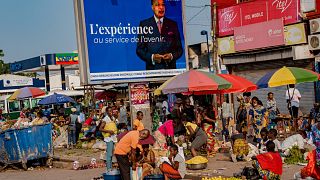Republic of the Congo
We are in the realm of sape, a popular district of Pointe-Noire in the Republic of Congo. Here we have the sapeurs with their rhythmic steps and stylish clothes.
After the Rumba, the sapeurs want to see this art, which they define as "the society of stylish people", listed as an intangible heritage of humanity, because here, sape and rumba are closely related.
"Today, a musician cannot sing without showing off his steps, without dancing. The sapeurs also can't show off without having music." says Sidonie ELAPAYI ,ambassador of female sapeur in Africa.
"I think that sape is really a Congolese heritage that should be registered at UNESCO, because economically speaking, sape creates jobs. In particular in tourism, today there are several countries that normally adhere to this Congolese ideology which is none other than the sape, and they come to Congo Brazzaville, particularly in the small towns where there are several sapeurs to understand the phenomenon of the sape." added Norbat de Paris, UNESCO Ambassador of sape.
And in this process, the sapeurs are increasingly advocating for African brands.
According to Djo Ballard Co-founder of the sape movement, "We Africans don't want to wear western brands anymore. We now want to wear the clothes of African designers. We launched people's brands here, it didn't bring us anything. Wemba died, no designer came to his funeral, yet he launched many brands, I am a designer, I have the brand Djo Ballard, so if Africans have their brands, we wear African brands, and we bring money back to Africa."
Aware of the long process involved in registering a work of art as part of the heritage of humanity, the sapeurs call on the authorities of the two Congos to promote this practice more for a better representation of African brands.











02:19
"No Sign of Weakness": Burna Boy to release new album
02:20
Young designers grace the runway at Fashion Finest Africa’s show in Lagos
02:19
Morocco sees surge in Chinese tourists
Go to video
Angélique Kidjo makes history as first black African artist on Hollywood Walk of Fame
01:05
Pharrell Williams presents Spring/Summer 2026 collection for Louis Vuitton
02:18
Netherlands returns 119 artifacts looted from Nigeria